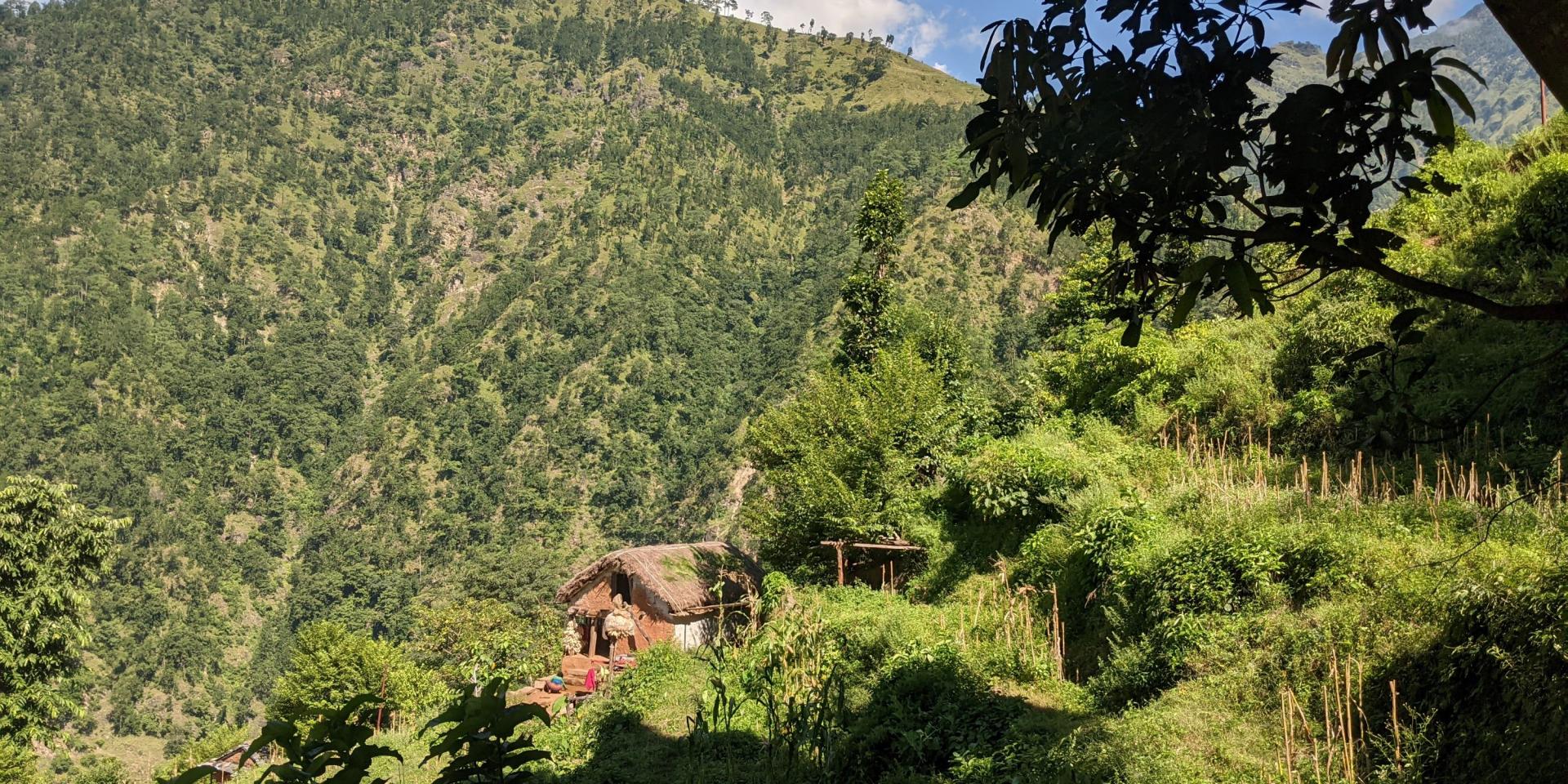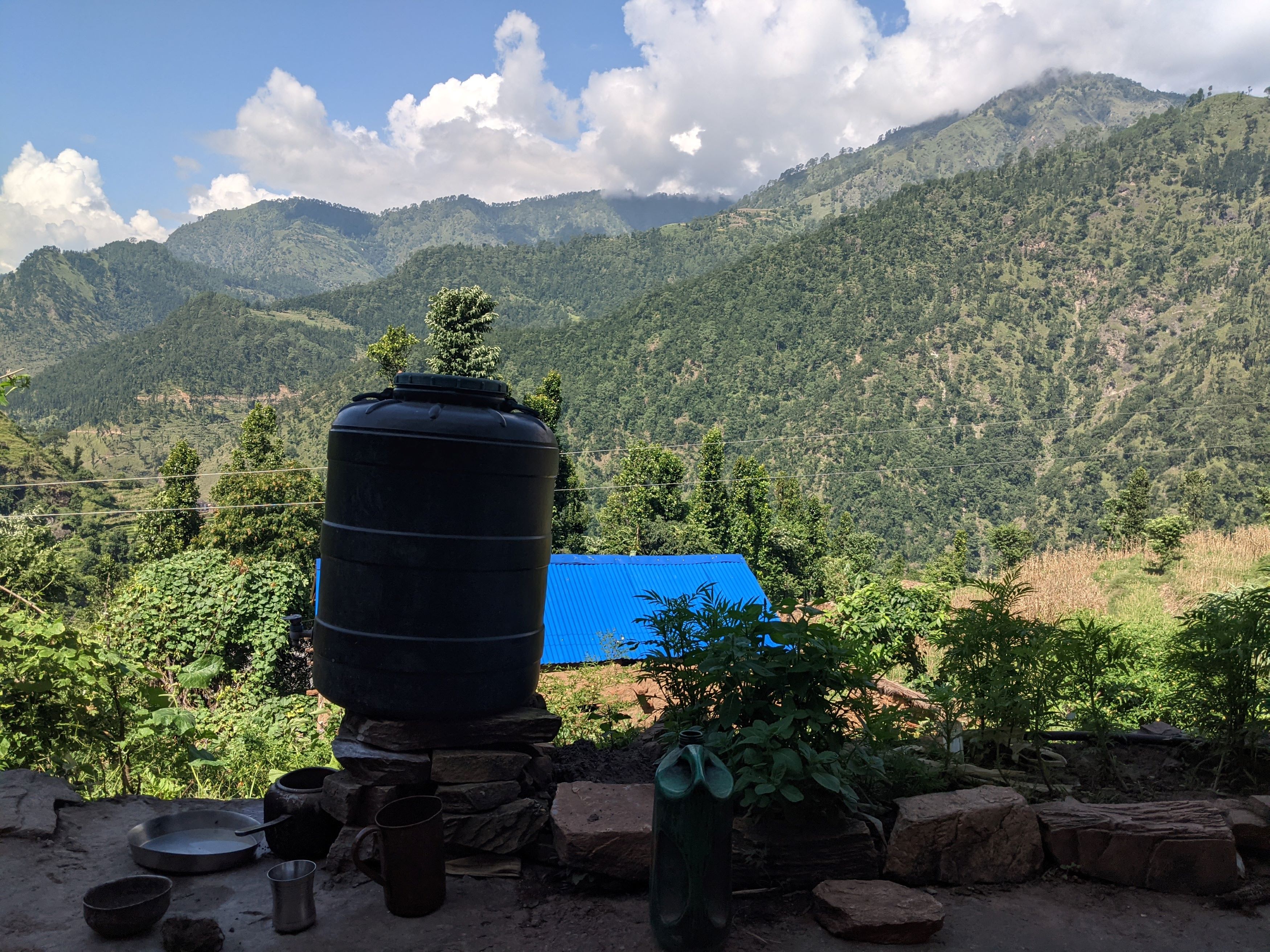Navigating the terrain of disability-inclusive research in Nepal
 Photo: Darshan Karki
Photo: Darshan Karki
Interventions in water, sanitation and hygiene (WASH) sectors in Nepal have typically been designed and implemented by engineers, with little input from the people using the infrastructure. Thus, while investments in WASH services increase availability for users, they do not automatically translate into increased accessibility and acceptability in local communities.
Designing inclusive infrastructure is essential to ensure that WASH services address user needs and are accessible for all. Over the past two decades, the discourse on inclusive WASH has expanded beyond gender and social inclusion to encompass persons with disabilities (PwDs). This shift, however, is only nominally reflected in Nepal’s WASH policies and interventions.
What we did
Against this backdrop, the International Water Management Institute (IWMI) in Nepal conducted qualitative research in two districts in Nepal—Dailekh in the midhills and Sarlahi in the flatlands—to assess WASH-related vulnerabilities faced by women, girls, and marginalized groups, particularly PwDs in the context of climate change.
We collected data using several qualitative research tools in sequence. First, community members from the two districts participated in community resource mapping (CRM), followed by focus group discussions (FGDs) with the CRM participants and people from groups marginalized because of caste, ethnicity, religion, gender, age or disability. Then we conducted semi-structured, in-depth interviews with PwDs, representatives of local bodies, donor organizations, and NGOs and international NGOs working on WASH and disability.
While CRM is widely used in WASH research, our focus extended beyond natural resources (springs, groundwater, rivers) and physical infrastructure (toilets, taps, beneficiary houses) to assess the inclusivity and accessibility of available resources and infrastructure. Combining and using the tools of CRM, FGDs and interviews proved to be particularly inclusive and effective for data collection.
We gained access to most of our respondents through purposeful, criterion and snowball sampling after collaborating with local nongovernmental organizations.
What worked?
Working with organizations of persons with disabilities
We collaborated with organizations of persons with disabilities (OPDs) to draw on their experience, networks, and knowledge of PwDs and their needs. The OPDs helped us reach PwDs by providing information on where and when interviews would best be conducted. For instance, in our fieldwork, we collaborated with a loose network of PwDs who not only brought not only managed to bring together PwDs for a FGD but also provided crucial feedback on reasonable accommodation, and other PwDs-friendly logistical arrangements.
Purposive and snowball sampling
Our experience affirms the effectiveness of using purposive, criterion and snowball sampling methods to access a hard-to-reach population. In the hilly district of Dailekh, which is characterized by geographical remoteness and scattered settlements, snowball sampling was invaluable to reaching out to PwDs.
Despite engagement with networks and rights-based organizations, PwDs might still be overlooked due to their limited visibility in society due to physical, societal and institutional barriers. Snowballing through interactions with community members is, therefore, invaluable for identifying PwDs, building trust and encouraging them to express themselves more openly.
Learning by doing
An important element of conducting disability-inclusive research is flexibility and openness to changing the ways we approach, frame and probe issues of concern.
For instance, after an interview with a person with visual impairment, we realized that our questions assumed that a person with any form of disability would need assistance in meeting their WASH needs, which is not necessarily the case. We incorporated this lesson in other interviews by subsequently rewording and rephrasing our questions.
Conducting focus group discussions with PwDs and their caregivers
Interviewing PwDs along with their caregivers was another method we found to be helpful. Caregivers provided us with information that would have been unavailable in their absence, particularly when we worked with people with intellectual disability or speech impairment with whom we did not have the capacity to communicate verbally or directly. Nonetheless, the extent to which caregivers’ views reflect that of the PwD is disputed for a reason.
In our interactions with caregivers, we observed that some responses tended to be exaggerated, such as claims of “having to assist PwDs with everything”. Such exaggeration may have stemmed from the caregivers’ hope of assistance from researchers. Even so, there is value in the insights of the caregivers compared to gathering no information from certain PwDs at all.
We found that one way to address inaccuracies in caregivers’ claims was to conduct FGDs with PwDs and their caregivers together with other community members. Using this approach, we encountered situations where information provided by certain caregivers was questioned by other caregivers and PwDs. others. For instance, in a discussion about disability identification cards (a requirement for receiving disability allowance in Nepal), a caregiver of a person with intellectual disability claimed delay by authorities, prompting other members to state that they had previously advised the caregiver to obtain the card on time.

A plastic container used for storing water in Aathabis Municipality, Dailekh. Photo credit: Darshan Karki
What could be improved?
Intentional PwDs–WASH research distinct from broader themes
Our research interwove complex themes of people being excluded from WASH services in the context of climate change. The broad focus on the complexities of inclusive WASH meant that we spread our attention thin across multiple themes. During our fieldwork we investigated WASH-related concerns and barriers faced by PwDs in conjunction with other aspects of marginalization based on caste, ethnicity, religion, gender and age.
However, enlisting PwDs as one of many groups that are marginalized by non-inclusive WASH services diluted the attention the group would have otherwise received. Because the concerns of PwDs are distinct, there is a need for intentional and focused research on the social, institutional, psychological and environmental barriers PwDs face in relation to WASH.
Research that truly addresses intersectionality within disability
Despite our aspiration to conduct truly intersectional research, we were unable to do so for two reasons. First, likely due to the greater engagement and role of men with disabilities in disability networks, and visibility in public life compared to women with disabilities, we spoke to fewer women.
Second, the intersectional and the gendered nature of vulnerabilities faced by women with disabilities did not receive the focus they deserved because PwDs were just one of many groups of people who have limited access to WASH services under climatic change.
Dedicated budget for inclusive project design and collaboration with OPDs
Disability-inclusive research requires our sensitivity to PwDs’ needs and limitations. We therefore need to closely collaborate with OPDs from the inception phase to select accessible venues for interviews, integrate sign language and braille as necessary, and provide reasonable accommodations for PwDs—all of which have budget implications. Certain logistical challenges we faced could have been preempted had we partnered with OPDs in our research-design phase. However, these good intentions are not sufficient for inclusive research if they are not paired with dedicated budgets.
In conclusion, conducting disability-inclusive research is considerably more challenging in practice than in theory. Achieving meaningful engagement with PwDs requires sufficient focus and dedicated resources to encourage their active involvement in projects from the start. This is especially pertinent in the WASH sector, which has traditionally prioritized infrastructure over inclusion.
Acknowledgements: This research is being carried out under the ‘Addressing Climate Vulnerability in Nepal through Resilient and Inclusive WASH Systems (RES-WASH)’ project, which is funded by the Water for Women Fund (an initiative of the Department of Foreign Affairs and Trade as part of the Australian Aid program) by IWMI-Nepal in partnership with Bagmati Welfare Society Nepal, Everest Club Dailekh, Global Institute for Interdisciplinary Studies, and National Association of Rural Municipalities in Nepal.